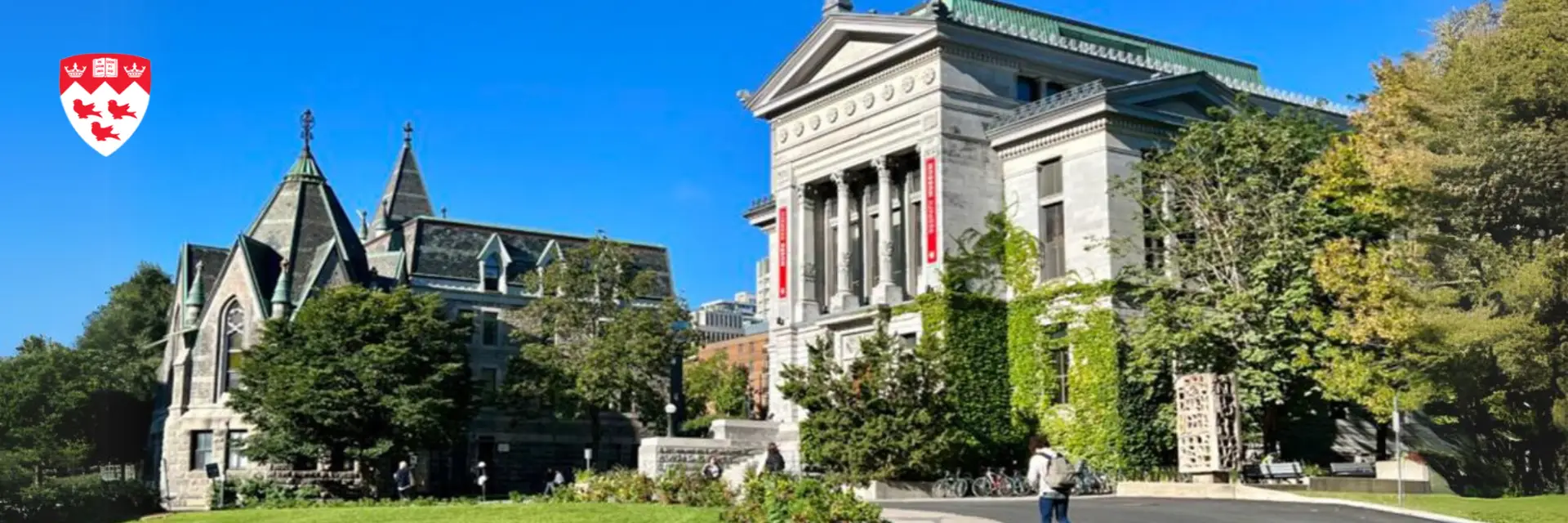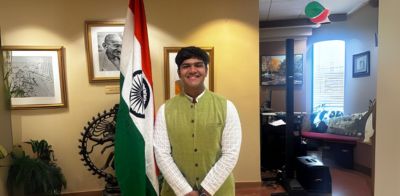- Name: Jugal Hemani
- University: McGill University
- Course: Mechanical Engineering [Master’s]
- Place: Montreal, Canada
- Graduation: August 2024
Key Highlights
- Choose subjects you are passionate about for your minor credits, even if they’re not necessarily connected with your main specialisation.
- Find jobs on campus in the US for financial support.
- Learn the local language if the main spoken language is not English.
- Make friends and have a good social life, but keep your studies as the main focus. Learning how to interact with others leads to more opportunities in life.
- Work smart, not always hard.
What made you choose the US for your Bachelor’s and Canada for your Master’s degree?
I studied at Cathedral and John Connon School in Mumbai where studying abroad was inculcated into us from the fifth grade. Plus, my father and grandfather had studied in the US. Thirdly, if I had to look at the economic and academic opportunities, along with quality of education, I believed it was better in the US.
I started applying to several colleges in 2016 when I was almost 18. I chose Purdue University, Indiana, because it ranks fourth for engineering in the US, after MIT, Stanford, and Georgia Tech. The top three were a long shot, so being realistic about my goals, I applied here for my Bachelor’s in aeronautical engineering. Stanford’s fees too are double or triple that of Purdue’s, where professors and facilities are on par with MIT. What matters is what you do with the education you get.
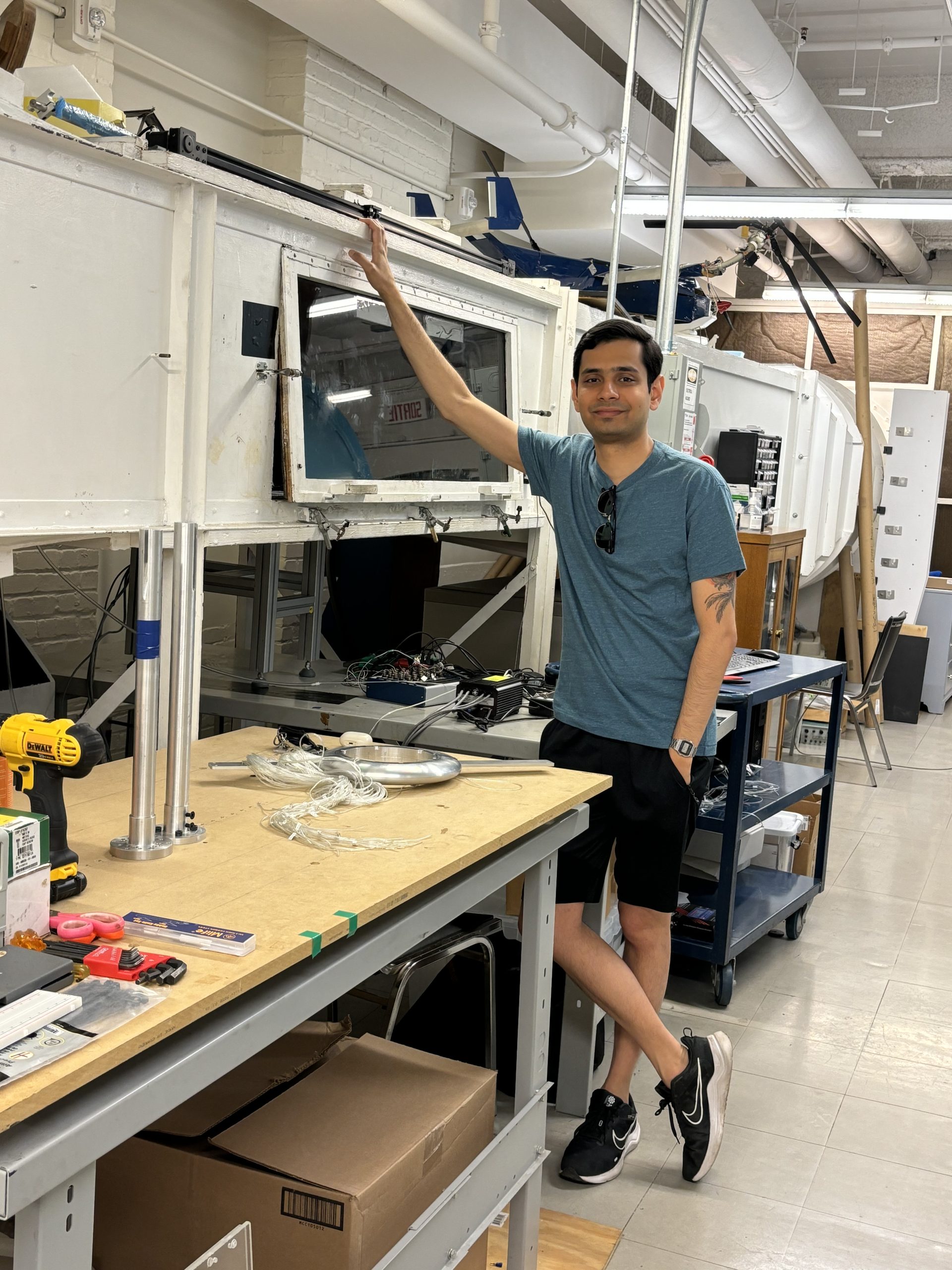
Jugal Hemani
Why did you not apply for scholarships but chose to pay the fees?
Scholarships mostly go to citizens, the children of veterans, and first responders. Even if I got one, it would have been a small amount in comparison to the tuition and fees.
On the bright side, I had two jobs at Purdue and currently, at McGill too. There are lots of jobs on campus. At Purdue, I worked as a teaching assistant to a Physics professor and a grading assistant to a Maths professor where I had to correct and grade assignments and exam papers.
In the US, you can only work 20 hours on campus, not off campus, as opposed to more relaxed rules in Canada, where there is no cap.
What kind of prep work did you have to do before moving overseas?
I didn’t do much, other than pack my clothes. As an undergrad, you get a mandatory meal plan along with housing. I ate all my meals there because I wanted to focus on studying. Now, since I live in an apartment and like cooking, I watch shows and videos on YouTube and make simple, healthy, filling meals.
Culturally, there are stark socio-economic differences. There is also a dark side due to a lot of crime at night.
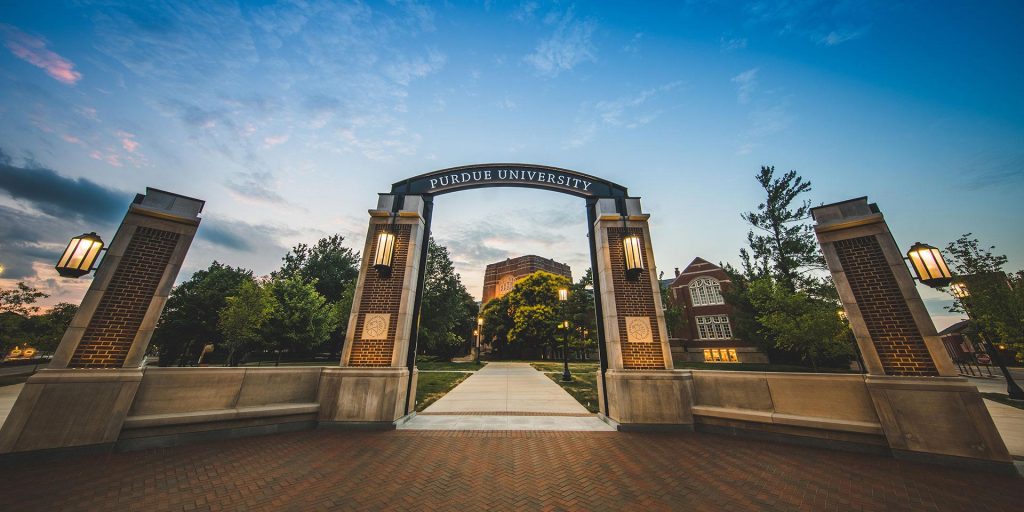
How similar or different are the education systems in the US and Canada?
Both systems are fairly similar; with two semesters of four months each for every academic year. Each semester has three to five courses (with three to four credits per course) and you need between 12 and 18 credits in total. Each department has specific requirements which give you flexibility for specialisation. I chose a minor in political science which I integrated into my major. It was only two extra classes and a breeze, because I am passionate about it. I enjoyed learning history, military history, international economics, foreign policy, and political theory.
There is a vast gap in teaching methods and the professional assignments. You get the best experience and a global perspective. It also enables students to hone their communication and writing skills. I strongly recommend that students should consider this option.
How did you adapt to the weather, accommodation and a different food culture; since you are vegetarian?
I am liberal and flexible in my food habits; I eat everything. There were all cuisines served at Purdue – Indian, Asian, Italian – and there were seven or eight dining courts. Since there are many Indian students, there are plenty of vegetarian options, even samosas and chhole. Food was not a problem.
I love the cold in Canada as I was never a fan of the heat and humidity of Mumbai. I enjoyed the weather and now, in Montreal, where it can be -15 degrees. I’m also comfortable being outdoors all day. I live in a studio apartment, which is not more than 200 square feet, the entire flat is the size of my room back at home. At Purdue, I lived in a shared dorm.
What are the challenges regarding studying in the US and Canada?
The challenge with Montreal is that half the city speaks English and the other half speaks French. I live in the French area so it helps to know the language. I can read a bit but can’t speak or understand, still, I get by. If you are going to an area where the spoken language is not English, it helps to learn the basics.
During class, the challenge is that some professors are Asian or European, and not all speak English as fluently as us Indians. It made a big impact on my ability to communicate with them, especially when I had doubts. This happened in the US too. One of my professors was Japanese and he was well spoken so he would explain every concept in clearly and comprehensively.
How do you manage your finances here in Montreal?
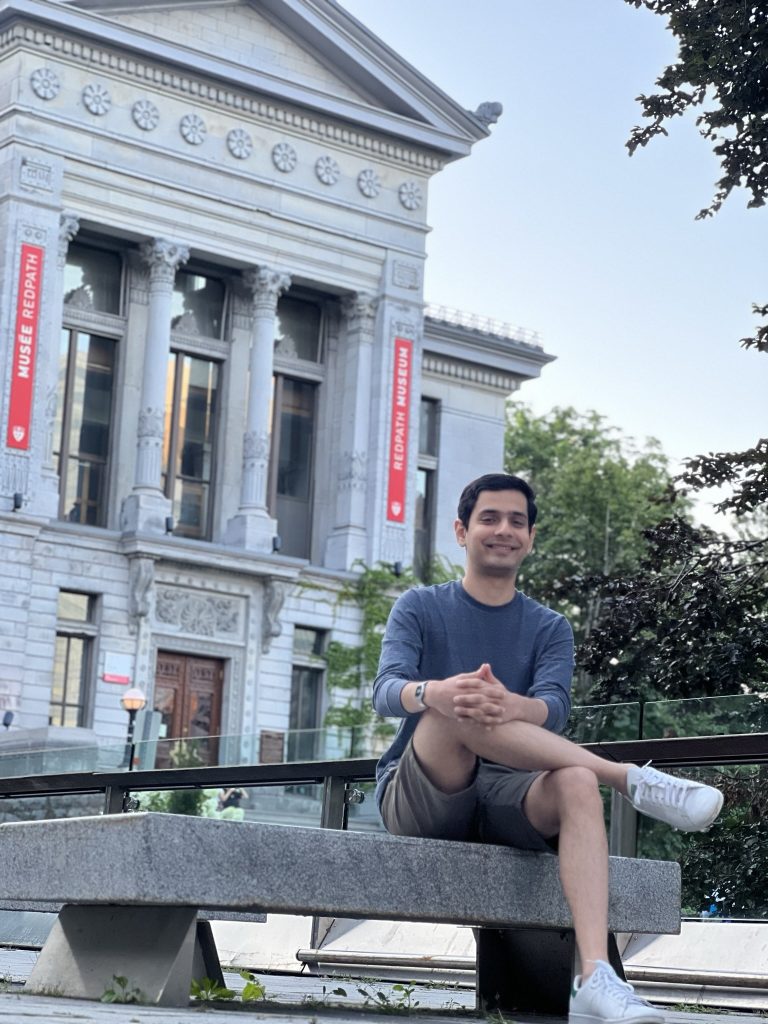
I work at two departments on campus – I’m an office assistant at University Advancement, specifically for the Vice Principal’s office, which deals with donations, alumni relations, fundraising, and other related matters. The second job is at the McGill Executive Institute (MEI), a part of the faculty of management, which caters to corporate clients who want to upgrade their skills while working via specialised/customised corporate training programmes. I work virtually as an IT assistant and help with enterprise administration.
In Canada, you can work unlimited hours, so my work hours vary but, on average, I do 25-40 hours a week which is a lot. My Master’s degree in mechanical engineering is not as intense so I can cope.
How did you assimilate with the local culture in both countries and make friends? Did you have an active social life?
While living abroad, you have ample opportunities to be part of social circles and clubs. I didn’t participate much in the US due to my extremely rigorous and demanding programme. My undergrad degree had four two-hour courses and assignments, so I would sleep at 2 am and be up at eight.
Looking back, I think it was unfortunate. Perhaps I was shy and nervous and found it hard to make friends. I’ve made a lot of friends here in Canada, mostly Indian and Moroccan, because the studies are not as time-consuming or intense.
If you can balance your attention to academics and have a social life, what you will remember is the fun experiences you had. It is harder if you don’t have friends. In Montreal, I completely off-loaded my focus on education and took up fewer courses with a lighter load. At this point in life, I feel that making meaningful connections is equally or even more important than academics and work.
How do you get an internship in Canada that can count as substantial work experience?

I was lucky, I got an internship at a start-up through the university. Most are for four to or six weeks. There are two routes to an internship. You can ask your department or apply on your own. Most internships go to citizens due to various government laws in place. I earned 500 dollars for that internship and the chance to learn a ton because I reported directly to the CEO. I made presentations on project management and recycling and repurposing of used lithium batteries. I also got first-hand experience in teamwork and conflict management.
The other jobs I do currently pay me about 2000 dollars a month. Montreal is 30 percent cheaper than other cities, so I pay 1000 dollars as monthly rent.
What are some of the resources you can explore to improve life as a student overseas?
Universities have several resources like the academic advisory office of the Dean of students. There are mental health resources that assist you with paperwork in case of a family emergency. Each department has its advisors who can help you out with any situation.
You can also explore mentorship opportunities as there are lots of active groups and clubs. Student societies, events, and hobby clubs abound. Each university will also have its own Indian student association, so that’s another way to attend events and make connections.
What is the most important advice you would give to students going abroad to study?
See the world as it is, not just through an Indian lens. You’ll notice how different yet similar people are. Economic and personal struggles vary in intensity and mindset. It’s humbling to observe these differences and similarities although it is easier for someone like me, from South Mumbai.
For someone from a small town, this can be vastly different. I find people here humbler and more down-to-earth compared to my hometown! A lot depends on your personality, professional interests, values, and financial background.
Assimilation involves taking part in activities that can be costly, especially when many international students face heavy loans. Socialize within legal limits and step out of your comfort zone, but listen to your body’s signals.
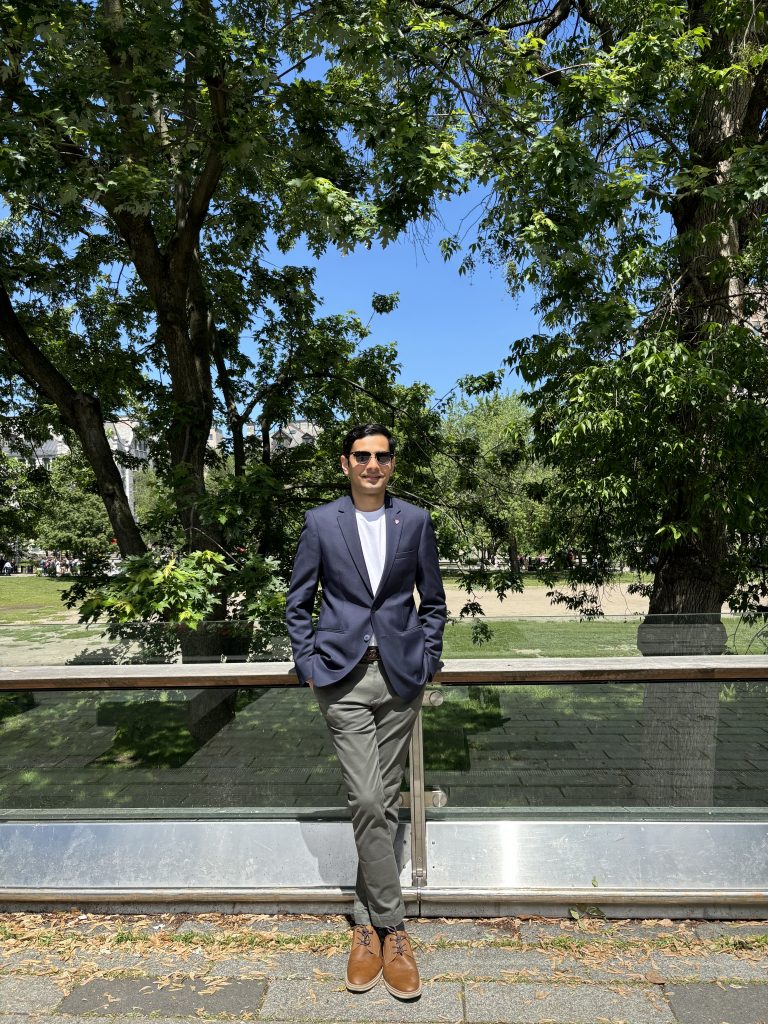
What are your career goals after you complete your Master’s?
My aerospace engineering bachelor’s degree has given me a skill set that is broad enough to fit across a vast range of industries. I don’t know what I want to do yet. I can work here in Canada after I graduate and get my PR in two years after which I can work in the US too.

